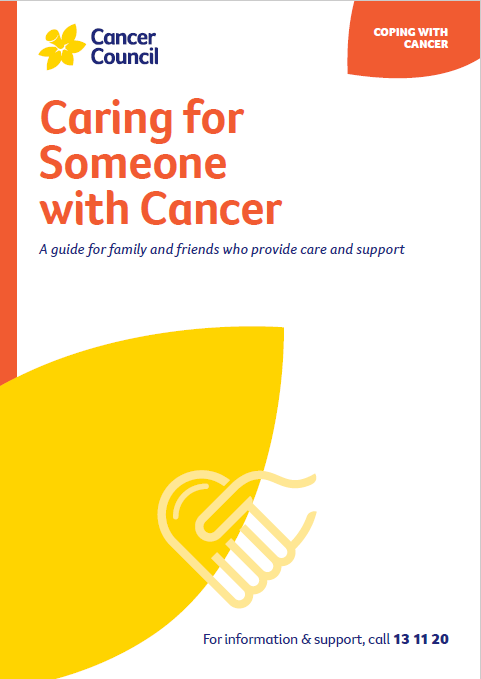- Home
- About Cancer
- Supporting someone with cancer
- Caring for someone with advanced cancer
- After someone dies
After someone dies
The response you have when someone dies is called grief. Coping with grief doesn’t mean getting over the person’s death. It’s about finding ways to live with the loss. The sorrow may never go away completely, but most people gradually adapt.
Even when a death is expected, it may still feel like a great shock, and it doesn’t necessarily make the loss of the person easier to cope with once they have died. Sometimes the experience of anticipating the death and spending a lot of time caring for the person strengthens your relationship with the person, which can also increase your grief.
Common reactions
After the person dies, you may feel a range of emotions, including:
- numbness and shock, or a sense of disbelief, even if you thought you were prepared for the loss
- sadness
- anger towards the doctors or the hospital, your god or the person who died
- relief that the person is no longer in pain
- guilt that you feel relieved to be free of the burden of caring and can now make plans for your future
- pride in how you supported someone as they were dying
- questioning whether there were things that you or the treatment team could have done differently to prolong life or make things better for the person
- regret about things you did or didn’t do, about not being there at the time of death, or about how you are feeling
- anxiety about the future – what you will do or how you will manage.
- All these reactions are common. These emotions may come and go and change over time. Be kind to yourself. You do not need to rush to make decisions about your life.
There is no right or wrong way to grieve and everyone mourns in their own way. If your grief seems overwhelming, you can reach out to your GP, a bereavement counsellor on the palliative care team, or call Cancer Council 13 11 20. Support groups or bereavement counselling can help you get through tough times.
For more on this, see Facing end of life and Understanding grief and listen to the podcast below.
At times the sadness and pain I feel is all consuming and hard to bear, while at other times these feelings are just in the background of my day-to-day activities.
Anne
→ READ MORE: Support and information
Podcast: Life After Loss
Listen to more of our podcast for people affected by advanced cancer
More resources
Dr Alison White, Palliative Medicine Specialist, Royal Perth Hospital, WA; Tracey Bilson, Consumer; Louise Dillon, Consumer; Louise Durham, Nurse Practitioner, Palliative Care Outpatients, Princess Alexandra Hospital, QLD; Katrina Elias, Carers Program, South Western Sydney Local Health District, NSW Health, NSW; Jessica Elliott, Social Worker, Youth Cancer Services, Crown Princess Mary Cancer Centre, Westmead Hospital, NSW; Brendan Myhill, Social Worker and Bereavement Research Officer, Concord Repatriation General Hospital, NSW; Penny Neller, Project Coordinator, National Palliative Care Projects, Australian Centre for Health Law Research, Queensland University of Technology, QLD; Olivia Palac, Acting Assistant Director, Occupational Therapy, Gold Coast University Hospital, QLD; Nicole Rampton, Advanced Occupational Therapist, Cancer Services, Gold Coast University Hospital, QLD; Shirley Roberts, Nurse Consultant, Medical Oncology, Northern Adelaide Cancer Centre, SA; Dr Elysia Thornton-Benko, Specialist General Practitioner, and UNSW Research Fellow, NSW; Kathleen Wilkins, Consumer; Helen Zahra, Carers Program, South Western Sydney Local Health District, NSW Health, NSW.
View the Cancer Council NSW editorial policy.
View all publications or call 13 11 20 for free printed copies.

